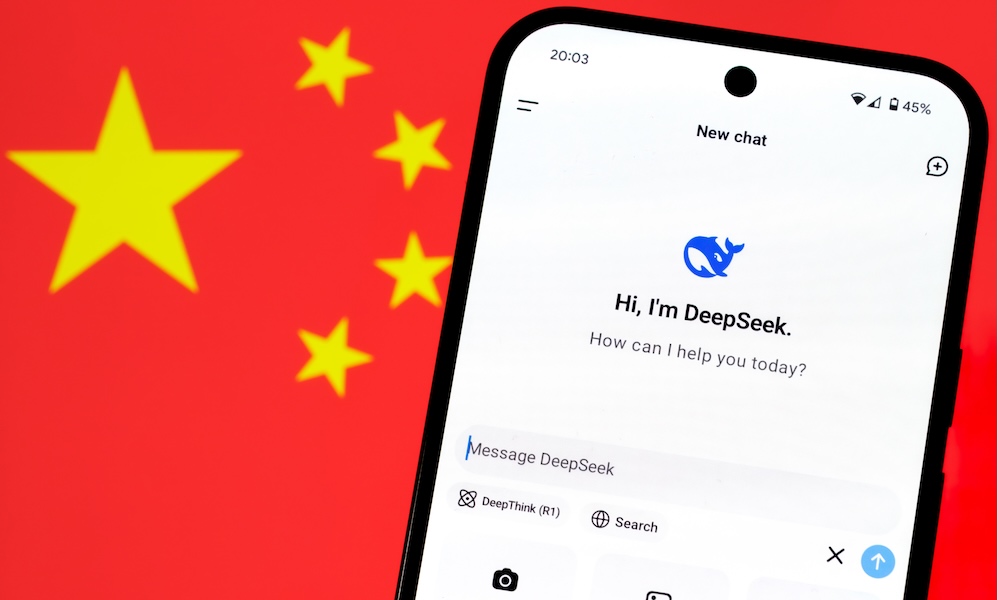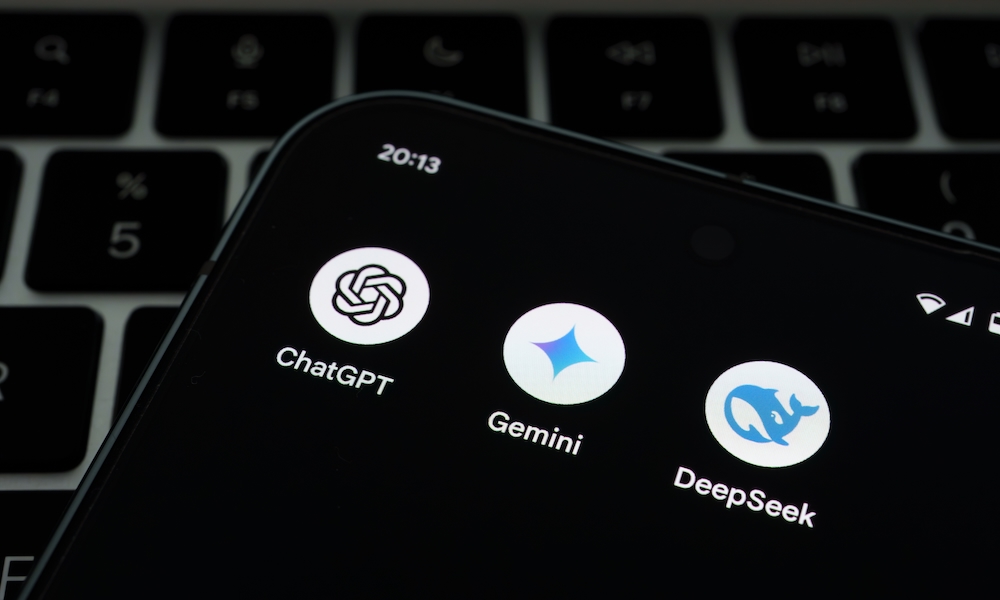China Joins the AI Race with New ChatBot App | Is it Better than ChatGPT?
 Credit: Ascannio / Adobe Stock
Credit: Ascannio / Adobe Stock
Toggle Dark Mode
Until recently, it was generally accepted that to compete in the AI race, you needed the resources of tech giants like OpenAI, Meta (Facebook), X (Twitter), or Google to leverage the computing power of specialized chips. However, China just threw a wrench into that conventional thinking.
Chinese company DeepSeek has just launched a chatbot that rose to the top of the App Store this past weekend. DeepSeek performs well compared to other available AI tools — and it’s free. It also does so with a mere $6 million in computing power.
As of today, DeepSeek has had more downloads on the App Store than ChatGPT. To make matters worse, DeepSeek’s skyrocketing success has resulted in a tech stock sell-off, causing the Nasdaq to fall 3%, with Nvidia shares losing nearly 17% — $600 billion in market cap. DeepSeek was also hit by a cyber attack today, forcing it to limit new downloads. Yikes, what a ss..storm!
DeepSeek’s apparent success is at odds with the Biden administration’s last-ditch effort to keep AI chips made by Nvidia and others out of the hands of foreign adversaries like Russia and China. With the TikTok drama as the backdrop, DeepSeek’s raging popularity is causing political and financial shockwaves across multiple industries.
Famous Silicon Valley venture capitalist Marc Andreessen said on X that DeepSeek’s R1 is “AI’s Sputnik moment.” Has the global AI race officially kicked off? Here’s what we know about DeepSeek.
DeepSeek is the brainchild of Liang Wenfeng, who runs a quantitive trading hedge fund called High-Flyer. Wenfeng has been using AI to make investment moves. At the same time, he was also buying thousands of Nvidia chips as far back as 2021 to train an AI model on a limited set of chips. He started recruiting talent from China’s top universities and paying competitively with other national tech giants.
In a July 2024 interview, Wengfeng articulated his vision of combining top talent with a fast-moving culture driven by ideas. Another key differentiator for DeepSeek, according to Wengfeng, is that, unlike ChatGPT and others, DeepSeek is open source. Open source means DeepSeek’s source code is available to the public. WengFeng said on being open source, “For technologists, being followed is rewarding. Open-source is cultural, not just commercial. Giving back is an honor, and it attracts talent.” Rather than live in fear that their model will be copied, he says DeepSeek will instead rely on “accumulating know-how” and “fostering an innovative culture.” So far, it seems like he’s found the recipe for disruption, if not success.
As of now, the source of today’s cyber attack on DeepSeek is unknown. However, the company’s website appears to be working, and the app is available for download in the App Store. We’re still testing DeepSeek to compare how it stacks up against ChatGPT, Grok, and others. So far, it’s pretty good. See for yourself. Is the technology truly disruptive enough to warrant today’s Wall Street sell-offs? It may be too early to tell. One thing seems certain, the modern day space race is on!








